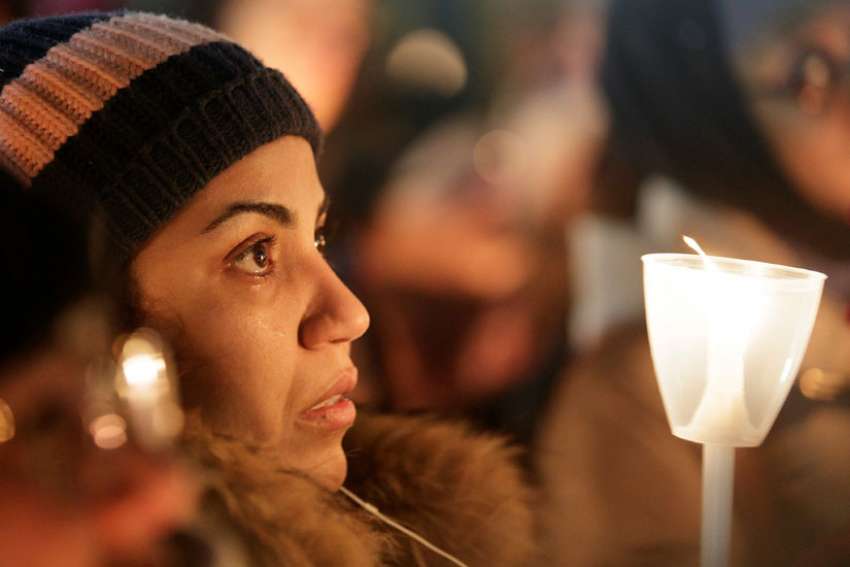Dante, in his 14th-century travelogue of the netherworld, The Inferno, assigned no particular place for those who would kill those at worship. Seven centuries later it would be an oversight he would surely correct.
Recent years have brought a global litany of sacrilege with massacres in mosques, temples, shrines and churches — both Catholic and Protestant. Those who would kill those seeking to encounter God have forfeited their own place in His presence.
My second thought was of admiration for the necessary witness of prayer that Muslims often offer. There were a good number of them at prayer last Sunday evening at the Islamic Cultural Centre. The time of the shooting, 7:50 p.m., is during our Sunday evening Mass at the cathedral in Kingston. It’s the Lord’s day for us, but not for Muslims, yet they too were at prayer. I never thought myself in danger when at Mass; neither did the Muslims praying on Sunday night.
“The religiosity of Muslims deserves respect,” wrote St. John Paul II in his 1994 Crossing the Threshold of Hope. “It is impossible not to admire, for example, their fidelity to prayer. The image of believers of Allah who, without caring about time or place, fall to their knees and immerse themselves in prayer remains a model for all those who invoke the true God, in particular for those Christians who, having deserted their magnificent cathedrals, pray only a little or not at all.”
There are many ways to define the human being. A rational animal is the usual answer from philosophical anthropology. The biblical answer is not quite so specific, but tells us that we are made in the “image and likeness of God.” That means a rational intellect and a free will, but another way to think about man is that he is the praying animal. A man at prayer is more fully and visibly in the image and likeness of God.
It’s a sacrilege to “profane or treat unworthily” a “place consecrated to God” as the catechism teaches, which is why mass murder in a place of worship in still more heinous than mass murder alone. Yet there is also a kind of sacrilege in the killing of men at prayer. Not only are they innocent and defenceless, but at that moment uniquely in the image of God.
At Sunday Vespers, we often sing, “The whole creation proclaims the greatness of your glory.” Yet creation by itself does not proclaim anything. It is man who in the midst of creation proclaims the glory of God. A flower is just a flower — it is man who sees in it a reflection of the beauty of God.
The order of the universe is marvellous to behold, but it needs to be beheld. Man stands amidst creation to be a witness to the mighty works of God. Otherwise they remain just mighty works — it is man who sees in creation the hand of God. The psalmist sings “the heavens are telling the glory of God, and the firmament proclaims His handiwork” (Psalm 19:1).
Creation needs a psalmist. The late New York rabbi and scholar Abraham Joshua Heschel had a beautiful expression: “Man is the cantor of creation.” It is through man that creation gives glory to God.
The man at prayer completes the work of creation. We know that soon after that same man falls into sin. He hears from the Lord God the words that we shall hear in a few weeks on Ash Wednesday: “You are dust, and to dust you shall return.”
God reminds Adam of his origins, and now, after sin, of his destiny. In those words, though, we find Adam’s mission to be the cantor of creation — he is one with the dust of the earth. In his materiality he is united with all of creation, with the most delicate butterfly and the most inert rock. And yet he can lift his voice to God and bow down before Him.
Those cut down on Sunday night in Ste. Foy were doing just that. The praying animal was killed by the preying animal; man’s abuse of freedom that makes him more wicked than all the animals.
We pray for the dead of the mosque, and for the repentance and conversion of the one who killed them. We honour them best when we remember simply to pray.
(Fr. de Souza is the editor-in-chief of Convivium, a Canadian magazine of faith in our common life: www.conviviummagazine.ca.)

